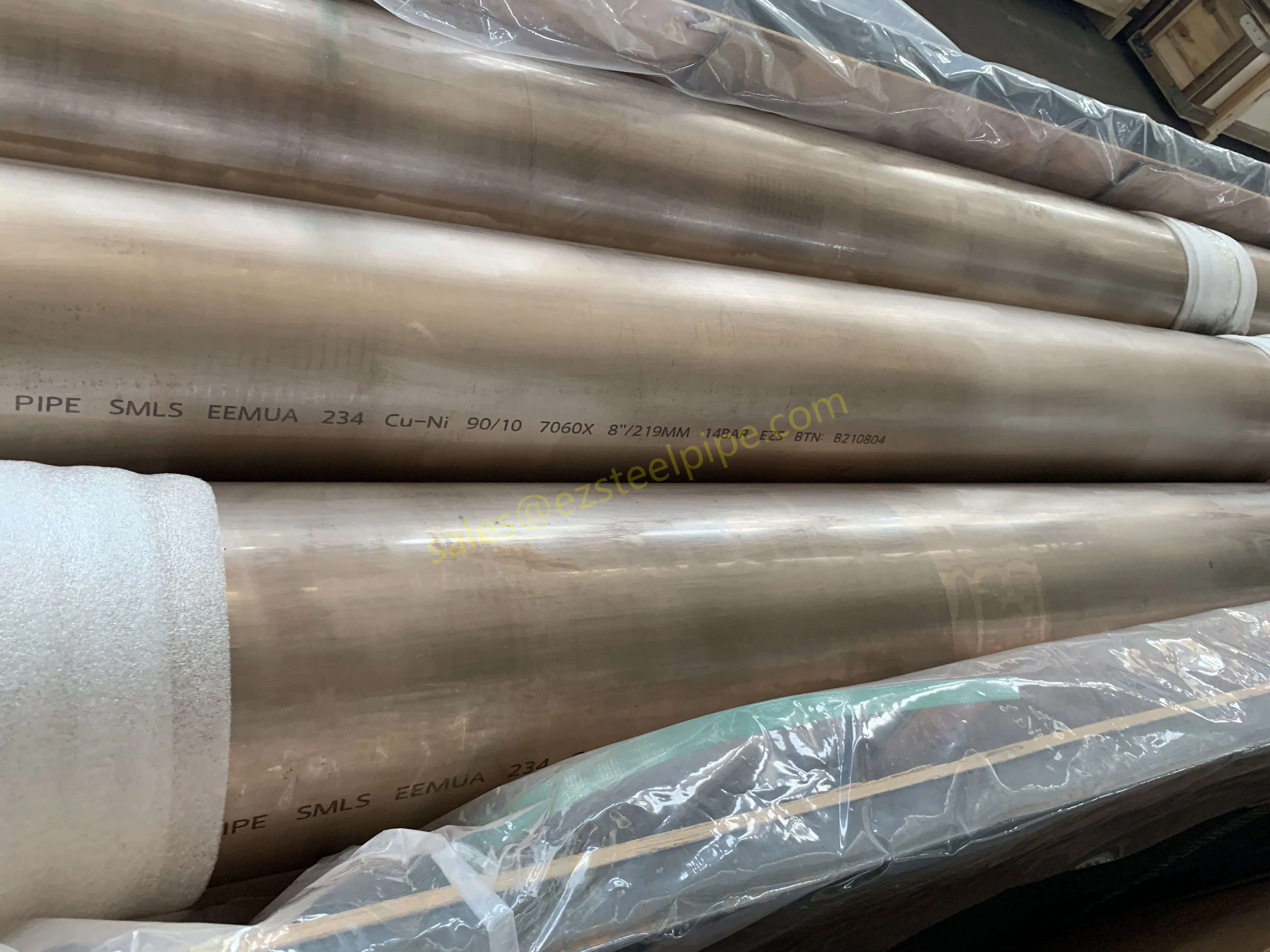 export@ezsteelpipe.com
export@ezsteelpipe.com +86 731 8870 6116
+86 731 8870 6116
This standard specifies requirements for copper-nickel (Cu-Ni) alloy tubes used in offshore applications, particularly for seawater systems. It covers material properties, dimensions, tolerances, testing, and inspection to ensure reliability in corrosive marine environments.


This standard specifies requirements for copper-nickel (Cu-Ni) alloy tubes used in offshore applications, particularly for seawater systems. It covers material properties, dimensions, tolerances, testing, and inspection to ensure reliability in corrosive marine environments.
When ordering Cu-Ni tubes per EEMUA 234, the following should be specified:
- Alloy designation (e.g., 90/10 Cu-Ni, 70/30 Cu-Ni)
- Dimensions (outer diameter, wall thickness, length)
- Temper (e.g., annealed, as-drawn)
- End finishes (plain, beveled, grooved)
- Certification requirements (e.g., EN 10204 3.1/3.2)
- Special testing (if required, e.g., corrosion testing)
Common alloys covered:
- 90/10 Cu-Ni (UNS C70600) – General seawater service
- 70/30 Cu-Ni (UNS C71500) – Higher corrosion resistance
- Other variants (if applicable, with trace element controls)
- Melting process: Typically electric furnace with controlled impurity levels.
- Chemical composition: Limits for Cu, Ni, Fe, Mn, and trace elements to ensure corrosion resistance.
- Tensile strength, yield strength, elongation per alloy and temper.
- Hardness requirements (Rockwell or Vickers, as applicable).
- Outside diameter, wall thickness, straightness, and length tolerances specified.
- Surface finish requirements (e.g., smooth, free from defects).
- Non-destructive testing (NDT): Eddy current, ultrasonic, or hydrostatic testing.
- Corrosion testing (if specified, e.g., ASTM G48 for pitting resistance).
- Visual inspection for surface defects.
- Certification: Mill test reports (MTRs) to EN 10204 3.1 or 3.2.
- Permanent marking with alloy grade, heat number, size, and manufacturer.
- Protective packaging to prevent damage during transport.
- Compliance with ASTM, EN, or other international standards as applicable.
- Third-party inspection (if required by purchaser).
Conclusion
EEMUA 234 provides a comprehensive specification for Cu-Ni alloy tubes in offshore environments, ensuring material integrity through strict chemical, mechanical, and inspection criteria. It is widely referenced in the oil & gas, marine, and desalination industries.
The standard typically includes the following alloys, identified by Unified Numbering System (UNS) and European (EN) designations:
| Alloy Type | UNS Number | EN Designation | Common Name |
| 90/10 Cu-Ni | UNS C70600 | CW 352H (EN 12451) | 90% Cu, 10% Ni |
| 70/30 Cu-Ni | UNS C71500 | CW 354H (EN 12451) | 70% Cu, 30% Ni |
EEMUA 234 may also refer to material specifications from:
- ASTM B466 / B467 (Seamless & Welded Cu-Ni Tubes)
- ISO 13388 (Copper & Copper Alloys – Inspection & Testing)
- EN 12451 (Copper & Cu Alloy Tubes for Heat Exchangers)
- Annealed (O) – Soft condition for forming
- As-Drawn (H) – Hard temper for higher strength
- Heat numbers must be provided for material traceability.
- Certification per EN 10204 3.1 or 3.2 (Inspection Certificates).
- The 90/10 Cu-Ni (C70600) is most common for general seawater service.
- The 70/30 Cu-Ni (C71500) offers superior corrosion resistance for harsh offshore conditions.
Want to order the same ? Contact us Now to send your request!

 Related Products
Related Products